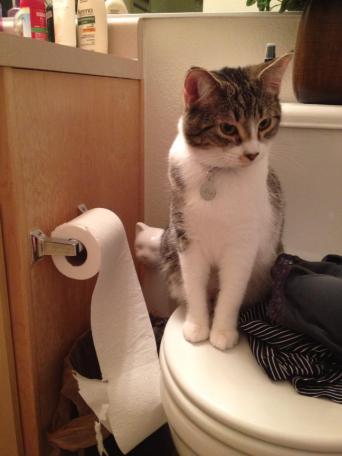The scandal of disagreeing with doctrine
I’ve written before about why I don’t believe in good people. Truthfully, I could believe this with or without Christianity and the doctrine of Original Sin. But it’s one thing to believe humans are “not good,” and quite another to say we are fundamentally “broken.” I’ve listened to and read stories of former Christians who endured years of poor self-esteem because of the way they were indoctrinated: made to feel guilty and hate themselves simply for being born.
More progressive strands of Christianity might say we are “flawed” in place of harsher terms like “broken” or “depraved,” but the sentiment is very similar, and likely won’t make skeptics feel much better.
This has been an issue of contention between me and a close Christian-turned-atheist friend. This is one doctrine I have not been willing to budge on, much less reconsider. Here’s a revealing truth, though: it may not be entirely inaccurate to say my view of mankind has been strongly influenced by the abusive relationship I was in for five years. Being told I was worthless by my boyfriend, mostly through actions, and then told the same, in words, at Campus Crusade for Christ was an easy transition for me. Had I been a psychologically healthier person, I might have pushed back on this teaching a lot more.
I tried the “flawed not broken” approach with Neil. The idea that “doing good” is not the same BEING good. He wasn’t buying it:
Can you say instead that humans are constantly learning? How about evolving? Slowly progressing? Making advances all the time? In the cosmic time scale (think in millions of years, not hundreds, because life doesn’t evolve at the speeds we prefer), we are moving forward. Might we fail to overcome our own limitations? Sure, we might.
But any look back through history requires selectivity of some kind, an interpretive grid. The one Christianity uses DEMANDS that humanity be seen in a fundamentally negative light. But why? Why must the capacity for harm and self interest be the thing we say is MORE BASIC? What compels us to do that? Is it because the number of evils in our past outnumber the goods?
Are you sure about that?
Or are you compelled to do so by a narrative that requires it, because without that piece, the whole edifice of this religion collapses upon itself?
Well. Color me speechless. I really have no idea how to respond to this.
Or this:
You know how the news adage is “If it bleeds it leads?” The reality is that thousands, maybe millions of good things are happening every day, but they don’t make the news. Why not? Because that’s just not how news works.
And what is history if it’s not “the news” compiled over the course of thousands of years? Human history is a distillation of all the bleeding and leading of hundreds of thousands of news cycles. That skews our perception. Badly. Toward seeing humans as collectively worse than they really are.
Nobody writes history about the guys who decided NOT to start a war.
Neil’s words aren’t illogical. In fact, he presents a very believable case by citing real-world observations, as opposed to me citing a handful of Bible verses from a book that no longer has the same authority for him that it once did.
Brutal honesty must be one of my spiritual gifts, because otherwise I’d never ask myself what Neil is asking. Not to myself, and definitely not on a public blog (call me a spiritual exhibitionist): am I compelled to defend this view because a narrative I believe to be divinely inspired requires it?
I used to joke that anyone who is unsure if Original Sin is real should babysit a child in the midst of the Terrible Twos. Choose the wrong colored sippy cup, and bring on the apocalypse.
But that’s an expected phase of childhood, and I don’t have to have kids of my own to doubt this doctrine when holding an innocent, chubby-cheeked, sweet-smelling baby. I did just that at a Christmas party last year, and had to fight off that “Ooooh, I want one” feeling.
Yes, I doubt this doctrine. And it’s a slippery slope, because if humans aren’t inherently not-good, why did Jesus have to die? What is it that he died for – our bad life choices?
It could all fall apart.
I don’t think I’m a “true” agnostic. Agnostics, from what I know, make peace with uncertainty, and I’m not good at that. “Agnostic” is less a self-identifier as it is a name for a phase – a dry spell, a season – that I’m in right now. It’s not a place I want to stay. I have a long-term goal of getting my faith back. You could say I’m an agnostic with an agenda.
I’ve seen the complete picture of the puzzle on the box, and it looks beautiful (many will disagree, but beauty is in the eye of the beholder, right?). But putting all the pieces together myself is a long-term project, in which I’m fairly certain a few pieces are missing. The entire puzzle will never be complete. Therefore I must learn to live with an incomplete vision of the finished product.

Some people think all cats are depraved. Yes, those are claw marks in the toilet paper. No, she doesn’t look sorry. But she’s SO CUTE.
Filed under: Religion Tagged: Campus Crusade for Christ, Christian culture, Christianity, evangelicals











